Gymnasium of the Horse by G. Steinbrecht
$39.95
3 in stock (can be backordered)
Product Description
Gymnasium of the Horse stands as one of the cornerstones of equestrian literature. It is a work of truly remarkable coherence, comprehensiveness, and depth of understanding. Its careful study cannot help but repay the thoughtful horseman many times over.
This English translation of the German text is a superb learning tool as well as a fascinating read! This is probably the single most important text available to riders today. Steinbrecht has been recognized as a rare equestrian genius who was able to translate his many years of riding experience into a system of teaching and training that has stood the test of time and has been passed down to today’s horsemen via this book. Steinbrecht’s teachings have long formed the basis of German equestrian success and are now available in an excellently translated English version. No equestrian library is complete without this book – it’s a must have for all serious riders of all disciplines.
Gustav Steinbrecht was born in 1808 in Amfurt, Saxony, the son of a village pastor. Not being suited for the church, he studied veterinary medicine in Berlin, but son found himself drawn to the manege at Moabit of the celebrated dressage trainer Louis Seeger, where he stayed for eight years, long enough to become an accomplished ecuyer and win the hand of Seeger’s niece. In 1834, he took over the direction of a private manege in Magdeburg, where he remained for eight more years before returning to Berlin to work again with Seeger, now at the height of his fame. In 1849 he became director of the “Seegerhof” and began transcribing the notes which were eventually to become the heart of this book. A decade later, he acquired his own manege in Dessau, but when his wife found that city too confining, he returned once again to Berlin in 1865, where he continued to train horses almost until his death in February 1885.
(softcover, 319 pgs.)
Excerpt from the book:
The noble horse is not only the animal most suited for riding, it is also the creature with the most versatile talents in the entire animal kingdom. From time immemorial, the horse has been, and still is, the animal for which the young boy feels the greatest love and which the man holds in the highest esteem. Poets and songsters have always sung the praises of the horse, and not without reason: it has faithfully shared humanity’s fate, has participated in all great events recounted in history with active and courageous spirit, has followed man to the remotest corners of the earth, and has shared with him all hardships and privations. In peacetime and prosperity, it is the most precious luxury item; on the hunt, it is a cheerful companion to man, carrying its rider over hill and dale, across hedges and ditches, dependably catching up with any prey, even the fleetest, with the speed of the wind; in combat, it is the faithful friend and servant of the warrior with whom it willingly shares danger and toil.
Is there any way that man can show sufficient gratitude for such excellent service? Is it not this own interest to the greatest care and conduct the most serious research about the breeding, raising and training of this creature? And yet, in these three areas which should provide us with a reliable and plentiful supply of good and useful horses, we see the worst errors made as a result of the wrong attitude, petty adherence to narrow-minded aims, and prejudices of all kinds. All arts and sciences of our time have made such rapid advances from the study of nature that the successes attained often approach the miraculous. It is time to follow this example, to eliminate all old-fashioned prejudices, and to listen only to nature in order to learn the basic principles of producing a good horse. Nature works according to strict, immutable laws, which can be discovered only by observing nature’s unadulterated creations.
You must be logged in to post a review.
Related products
-
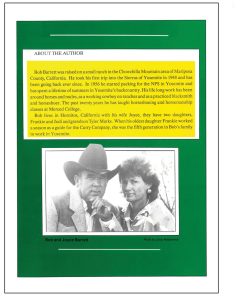
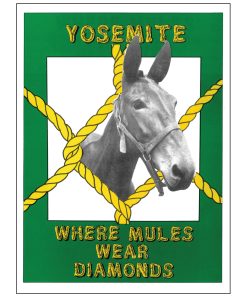
Yosemite: Where Mules Wear Diamonds By Bob Barrett
0 out of 5$19.95 Add to cart -
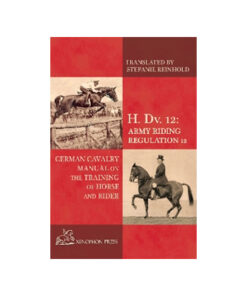
H. DV. 12 German Cavalry Manual: Training Horse & Rider
0 out of 5$34.95Brands:Dr Gerd HeuschmannRead more -

Lore of the California Vaquero by A.R. Rojas
5.00 out of 5$20.00Brands:Alamar Media Inc.Add to cart -
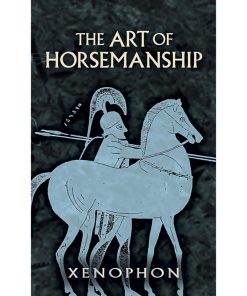
The Art of Horsemanship by Xenophon
4.50 out of 5$24.95 Add to cart -
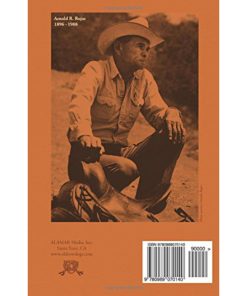

The Vaquero by A.R. Rojas
0 out of 5$20.00Brands:Alamar Media Inc.Add to cart

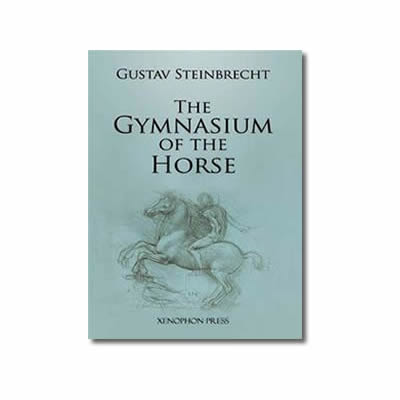


Reviews
There are no reviews yet.